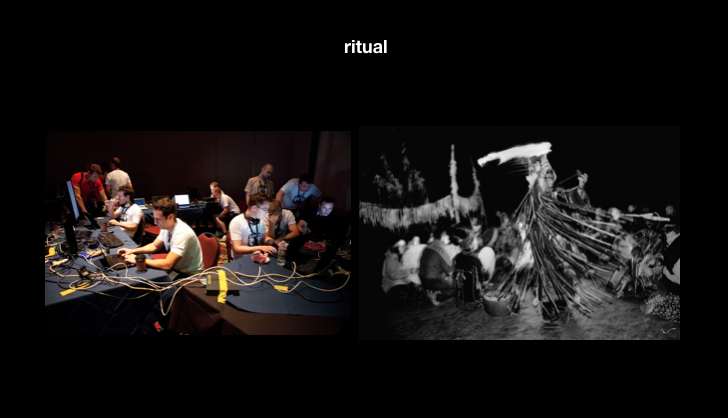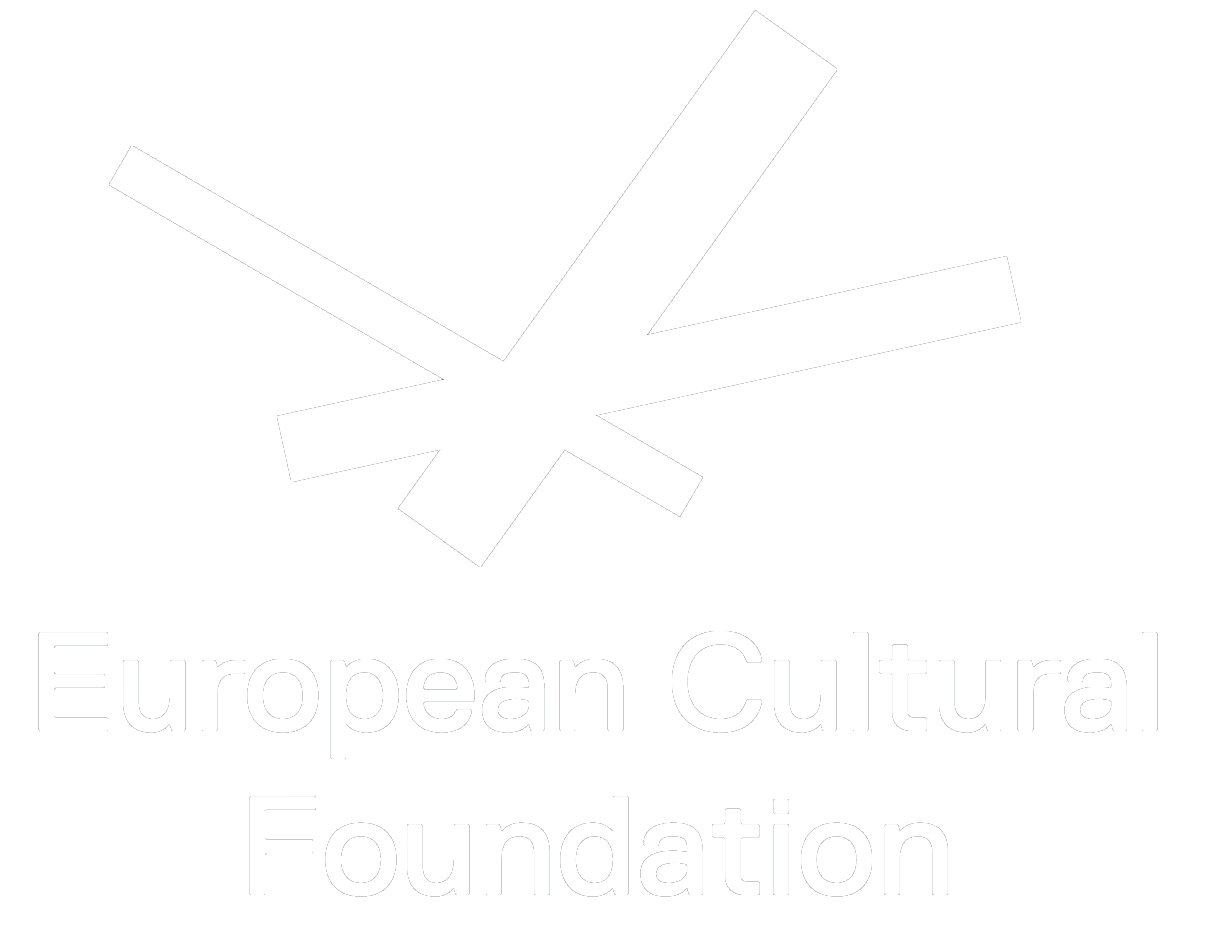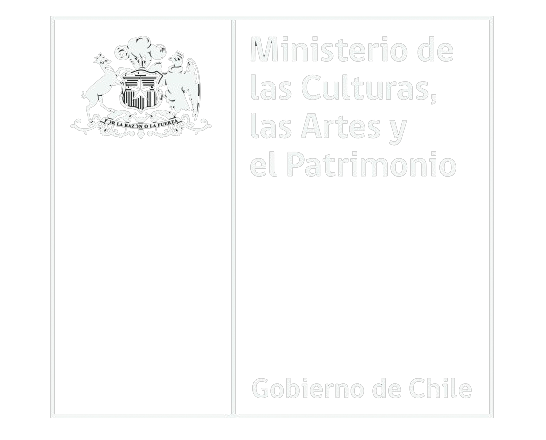the digital witchcraft institute
Sacred interoperability to fix this spiritual crisisthe digital witchcraft institute
AI Book Club: The Book of Martha by Octavia Butler
[Deep Migrations]
[Deep Migrations]
London
2019
Research, collaborative workshop
Research, collaborative workshop
During Mozfest 2019 we facilitated a session to examine the complexities of the desgning of automated systems. During the session we critically analysed the short story ‘The Book of Martha’ written by afrofuturist sci-fi writer Octavia Butler and we established parallels between the text and issues such as bias in AI, social bubbles and individual utopias.
Havana
2019
Essay
Essay

While under Western standards Cuba is an unconnected nation, their people has developed a set of unconventional and resourceful practices that had allowed them to access digital technologies under their own terms. Traces of Cuban political and religious history can be found in these practices, and with the imminent popularization of mobile connections, the communist island is at a crucial moment of their digital history.
Read the article at the Mozilla blog >
It Starts with Pokemon Go, it Ends with Bolsonaro
[Deep Migrations]
[Deep Migrations]
Rotterdam
2019
Essay
Essay
Chile was the first country in the world to have a net neutrality law, but it is not enforced at all. A simple search across mobile internet providers shows a large offer of “free” data if you’re using platforms such as Facebook, Twitter, Instagram, Spotify, or Pokémon Go. This is called “zero-rating” and means people don’t have to pay for using some services like they would for others. It’s a violation of net neutrality.
Read the article at EDRi website >
Incompetent Design against Digital Colonialism
[Deep Migrations]
[Deep Migrations]
Rotterdam, Boston
2019
Academic essay
Academic essay


Publication at The California Review of
Images and Mark Zuckerberg, an academic examination of the visual culture of Mark Zuckerberg. Read the article >
Images and Mark Zuckerberg, an academic examination of the visual culture of Mark Zuckerberg. Read the article >
Hackers and Shamans, Travelers of the Black Box
[Deep Migrations]
[Deep Migrations]
Rotterdam, Utrecht, New York City
2018-2019
Research, video 6’
Research, video 6’


This is a project that analyses the figures of the hacker and the shaman, initially both seem extremely different, one exists under the empirical realm of computer science and the other belongs in a mystical dimension that seems to have no relation with discrete, scientific knowledge. However, I propose that these two figures have ontological similarities when we consider their spaces of action as black boxes: the computational network in the case of the hacker and the human conscience in the case of the shaman.
Hackers and Shamans was presented at the 2018 masterclass conference at Utrecht University and at the H.O.P.E. conference in New York City.
Hackers and Shamans was presented at the 2018 masterclass conference at Utrecht University and at the H.O.P.E. conference in New York City.
Agency against the Anthropocene, the Case of EZLN
[Climate Justice]
[Climate Justice]
Amsterdam
2019
Academic essay
Academic essay
There is no way to ensure that the Zapatista movement is going to overcome the climate crisis, in fact, every revolution has to deal with the uncertainty of its future. However, the EZLN constitutes an example with such commitment to the radical transformation of the dominant paradigms that they should be considered as an obvious reference when studying human agency in our times of environmental emergency.
Read the article >
Read the article >
Towards a Posthuman Theory of Dreams: Aesthetic Examples
[Posthuman Technologies]
[Posthuman Technologies]
Rotterdam
2019
Academic essay
Academic essay

In order to think of the potential of dreams as a force that will de-center the human in our current cultural setting it will be necessary to evaluate the cooptation possibilities of the act of dreaming. The examples reviewed in this essay provide an appropriate reference to assess these biopolitical threats. In the case of eventual machines that attempt to access dreams it will be necessary to incorporate Giorgio Agamben’s vision on the process of “desubjectivation” perpetrated by technological gadgets. To him, what defines the devices we find in the current phase of capitalism is that these do not act through the production of a subject (as prisons or factories) but through process that could be called of “desubjectivation”. This is why Agamben negates the possibility of solving the problem of biopolitical control of digital devices through an “appropriate use”, it will always be just control and the people who promote these well-meaning discourses are only the result of the mediation device that has captured them.
Read the article >
Alexander McQueen’s Shows: from Paranoia to a Critique of the Anthropocene
[Climate Justice]
[Climate Justice]
Rotterdam
2019
Academic essay
Academic essay
The relation of Plato’s Atlantis with the effects of the Anthropocene can be considered an aesthetic proposal for new ways of inhabiting the planet. In this sense, Alexander McQueen’s visionary work of art can be located alongside to post-apocalyptic and even cli-fi pieces. To Donna Haraway, narratives of both the Anthropocene and the Capitalocene lend themselves too readily to cynicism, defeatism and self-fulfilling predictions, like the “game over, too late” discourse, and McQueen didn’t fall in that category of defeatism, he skipped it and proposed a vision for the next stage of the human race.
Read the paper in Academia.edu >
We have partnered with





︎ info [at] digitalwitchcraft.works ︎